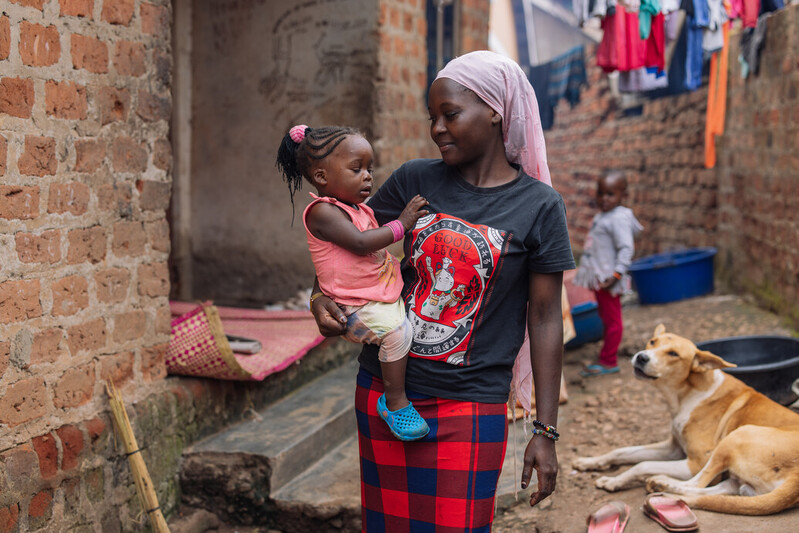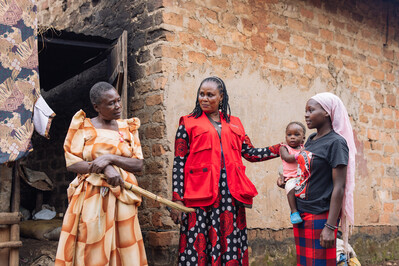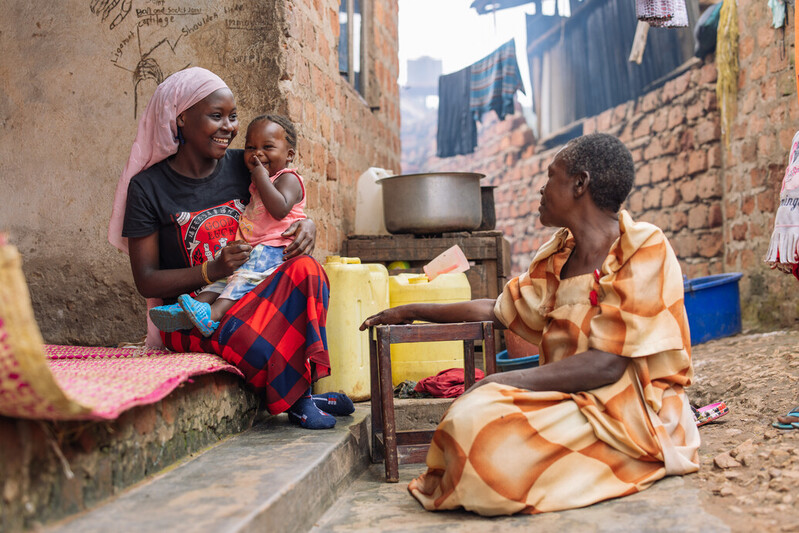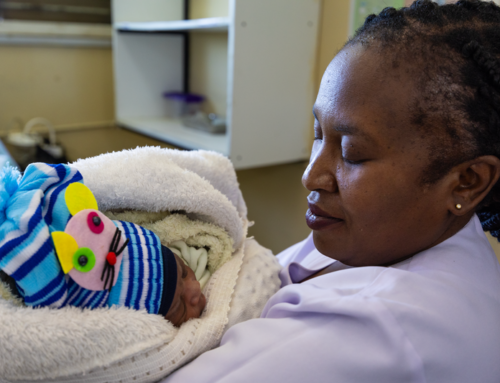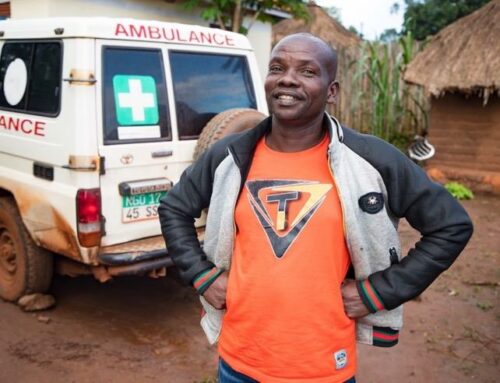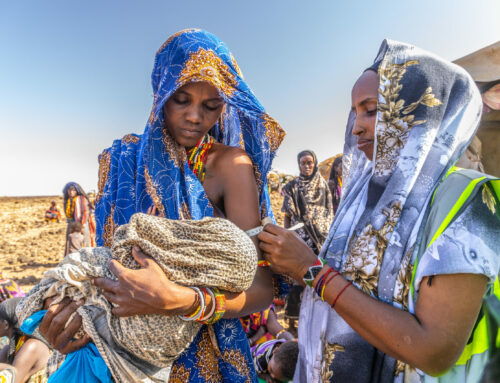Field Updates
Adolescent Motherhood and Resilience in Kampala
Story by Wesley Koskei
What happens to a dream deferred? Does it dry up like a raisin in the sun? Or fester like a sore–And then run? — Langston Hughes, “Harlem”
Sixteen-year-old Sharifa Namatovu and her 1-year-old daughter Nakiganda Chantel live in an informal settlement situated in the northern part of Kampala City, Uganda. Sharifa holds her daughter outside their home at the end of the lined-up brick-walled houses. She has hopes that her daughter will not go through the same challenges as her.
It is only fair that a 16-year-old girl dreams. But too often, difficult circumstances jeopardize these dreams, and make safety elusive. This is particularly true for teenage girls in difficult circumstances, like those in Kawempe informal settlement. Structural barriers and limited healthcare and education, compounded by poverty, form a harrowing reality for them.
Teddy Lutayo’s visit
Sharifa was visited by Teddy Lutayo, Amref’s community health volunteer, when she was pregnant in the informal settlement. Like many girls in similar situations, she recalls how this period was marked by sadness, fear, and uncertainty.
Teddy accompanied her to the nearby health center and provided her with antenatal information to ensure that Sharifa received all necessary care during her pregnancy. Upon the arrival of Sharifa’s newborn, Teddy gifted her a Kokono crib provided by Amref. The sustainably crafted crib not only provides a safe sleeping space but also shields babies from mosquito bites, a leading cause of malaria.
“I thank Teddy and Amref for assisting us with the Kokono crib. Our home is next to a dirty water trench which is a breeding ground for mosquitoes. The Kokono has helped to protect my daughter, and we haven’t had issues with malaria.” Sharifa says.
Dreams
The aspirations of many young girls hang in the balance, including Sharifa’s hopes of seeing her daughter thrive and rewrite their family’s narrative. There’s a looming risk that her daughter may fall into the cycle of poverty, likely hindering her education. Adolescent motherhood often impedes girls’ academic pursuits, which can profoundly impact their future opportunities. When a girl is deprived, society suffers the consequences.
In addition, adolescent mothers face higher risks of pregnancy and childbirth complications, often with life-threatening consequences. They are prone to social isolation and may find it challenging to sustain healthy relationships. Ultimately, teenage pregnancy affects the well-being and prospects of both mother and child. Financial struggles often accompany these challenges, as teenage mothers are less likely to be employed and lack the required skills or credentials for securing employment.
Sharifa’s dreams of completing school are in limbo, but she hopes her daughter Chantel will achieve what she has been unable to. “I would like my daughter to be a doctor.” she says. She is uncertain but says she is not giving up hope and would like to join vocational training herself.
Teddy’s visit to Sharifa and her family at Kampala. Amref Health Africa/Sarah Waiswa
What is needed
In many informal settlements, little attention is paid to the sexual and reproductive health challenges faced by adolescent girls. Limited access to sexual and reproductive health information and services is a significant barrier (World Health Organization). Community health volunteers like Teddy Lutoya play a critical role as the frontline workforce providing essential and adolescent-friendly services.
With your support we can expand training to more community health volunteers and improve the capacity of health centers to offer quality adolescent and youth-responsive sexual reproductive care. Additionally, we can offer vital support to adolescent mothers, empowering them to pursue and achieve their aspirations.
